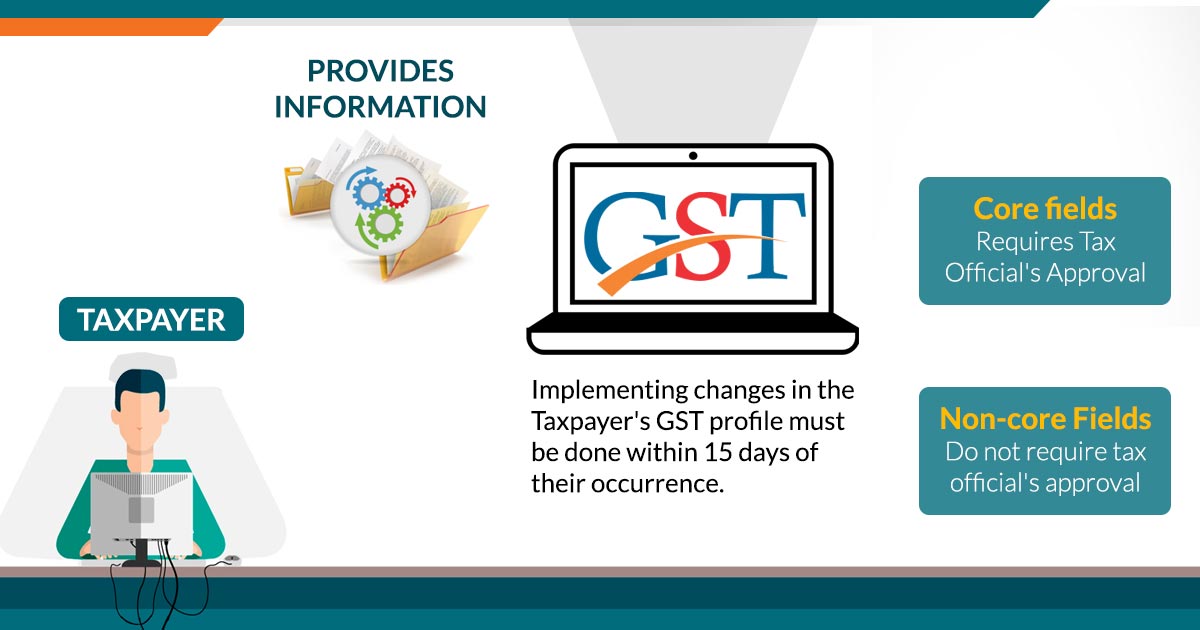Complete List for Reliable Singapore GST Registration
Complete List for Reliable Singapore GST Registration
Blog Article
Making Best Use Of Tax Effectiveness: Professional Tips on Navigating the GST Enrollment Labyrinth for Little Services
Navigating the elaborate landscape of Product and Provider Tax Obligation (GST) registration can be a labyrinthine task for small companies aiming to maximize their tax obligation performance. Comprehending the eligibility criteria, precise documentation needs, calculated timing considerations, and experienced enrollment process tips can significantly influence a business's economic standing. Conformity with GST policies is paramount, and sticking to best methods can enhance procedures and avoid potential risks. In this conversation, we will certainly explore experienced insights and workable recommendations that can empower small companies to navigate the GST enrollment maze efficiently and enhance their tax obligation effectiveness.
Eligibility Requirements
Qualification requirements for Small company GST Registration incorporate details standards that businesses need to fulfill to follow tax obligation regulations. To receive GST enrollment, a service has to have an annual turn over going beyond the threshold established by the tax obligation authorities, which varies by country. Additionally, services associated with inter-state supply of products or solutions, or those marketing items online, may be required to register for GST, irrespective of their turnover. It is necessary for businesses to properly determine their eligibility based on these turn over thresholds to stay clear of fines for non-compliance. Singapore GST Registration.

Documentation Needs
To effectively complete the procedure of GST registration, small companies should guarantee they have all needed documents in order. The required paperwork generally includes proof of business enrollment or address, identification and incorporation evidence of business owner, photos, savings account details, and proof of the principal business. Additionally, businesses need to give details of their business activities, including the services or items supplied. It is critical to make certain that all documents are precise, approximately date, and in the defined style to avoid hold-ups or beings rejected throughout the enrollment process.
Maintaining all needed documents organized and easily obtainable can streamline the enrollment process and help services abide with the demands efficiently. Thorough interest to detail and adherence to the documents standards are crucial for an effective GST enrollment procedure for small businesses.
Timing Factors To Consider
Thinking about the necessary documents requirements have actually been diligently addressed, the following important element for local business getting started on the GST registration procedure is the calculated monitoring of timing factors to consider. Timing plays an essential role in GST registration, affecting not just conformity but additionally economic facets of the business. Local business need to very carefully intend the timing of their GST registration to optimize advantages and minimize possible threats.

Furthermore, businesses ought to align the timing of their GST registration with their functional readiness. Ample preparation, such as upgrading accountancy systems and training staff, is important to flawlessly integrate GST requirements right into everyday operations. By strategically taking care of timing considerations, tiny companies can browse the GST registration procedure effectively and optimize their tax performance.
Registration Refine Tips
Successfully navigating the GST enrollment procedure requires small businesses to execute aggressive and strategic registration procedure suggestions. One vital idea is to ensure all required records are readily offered additional resources before beginning the registration procedure. This includes business enrollment papers, proof of address, bank declarations, and identification proofs of the service proprietors. Confirming the precision of the details supplied is just as vital to avoid delays or denials.
In addition, comprehending the thresholds and demands for GST enrollment based upon the details state or territory where the business operates is important. Some states have various turnover limits that trigger necessary registration, so being notified concerning these thresholds can aid services prepare in advance.
Another beneficial tip is to consider looking for professional help from accountants or tax obligation experts that concentrate on GST enrollment. Their experience can improve the procedure, minimize errors, and ensure conformity with all policies.
Conformity Ideal Practices
Navigating the GST enrollment procedure efficiently requires not just tactical registration process ideas but likewise thorough adherence to compliance finest practices to make certain recurring governing visit homepage alignment. Local business should focus on compliance to avoid charges and keep an excellent standing with tax authorities. One crucial finest practice is to maintain in-depth and accurate records of all deals. This includes invoices, receipts, and other financial files that might be needed for tax obligation audits or conformity checks. Furthermore, remaining educated concerning any type of adjustments or updates to GST policies is essential. Small company proprietors need to routinely evaluate federal government standards and look for professional suggestions if required to guarantee they are meeting all needs. It is also suggested to submit GST returns promptly to prevent late costs and charges. By incorporating these conformity best techniques right into their procedures, small organizations can browse the intricacies of GST enrollment with self-confidence and effectiveness.
Verdict
To conclude, small companies can browse the GST registration labyrinth by guaranteeing they meet qualification criteria, gather called for documents, take into consideration timing ramifications, adhere to registration process suggestions, and stick to compliance ideal practices. By taking full advantage of tax performance through correct GST registration, companies can boost their economic administration and operations.
Navigating the intricate landscape of Item and Provider Tax (GST) registration can be a labyrinthine job for little businesses intending to maximize their tax effectiveness.Qualification needs for Small Business GST Registration include certain criteria that services have to meet to abide with tax policies. The called for paperwork normally includes proof of organization enrollment or identity, unification and address evidence of the business proprietor, photographs, financial institution account details, and proof of the major location of business. Furthermore, companies require to offer information of their service activities, including the solutions or goods supplied.Successfully navigating the GST enrollment process needs tiny companies to apply proactive and critical registration process pointers.
Report this page